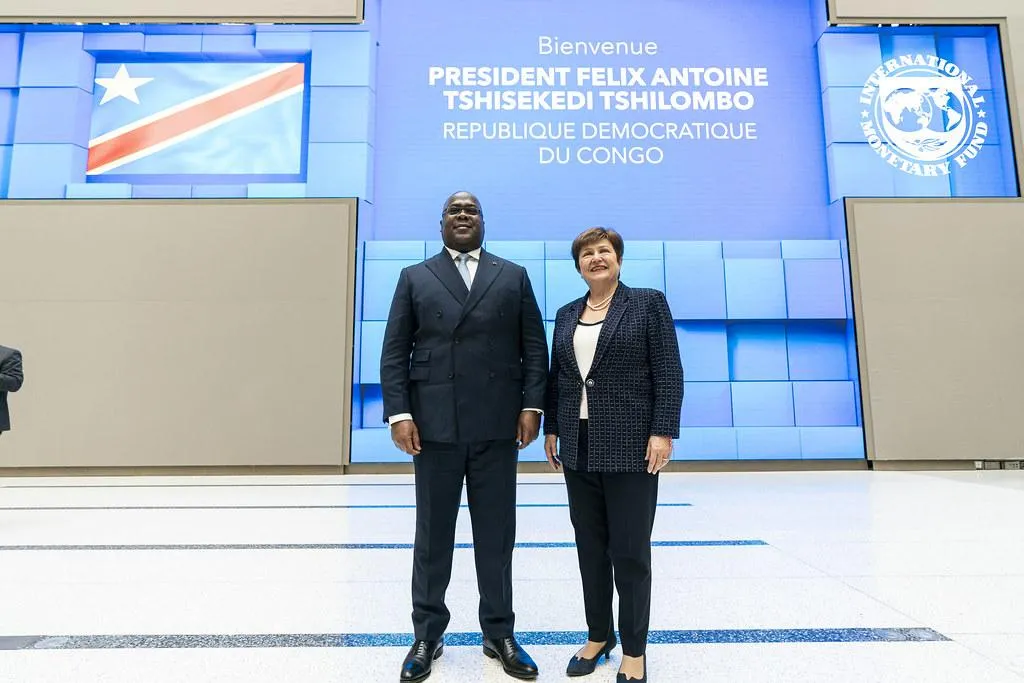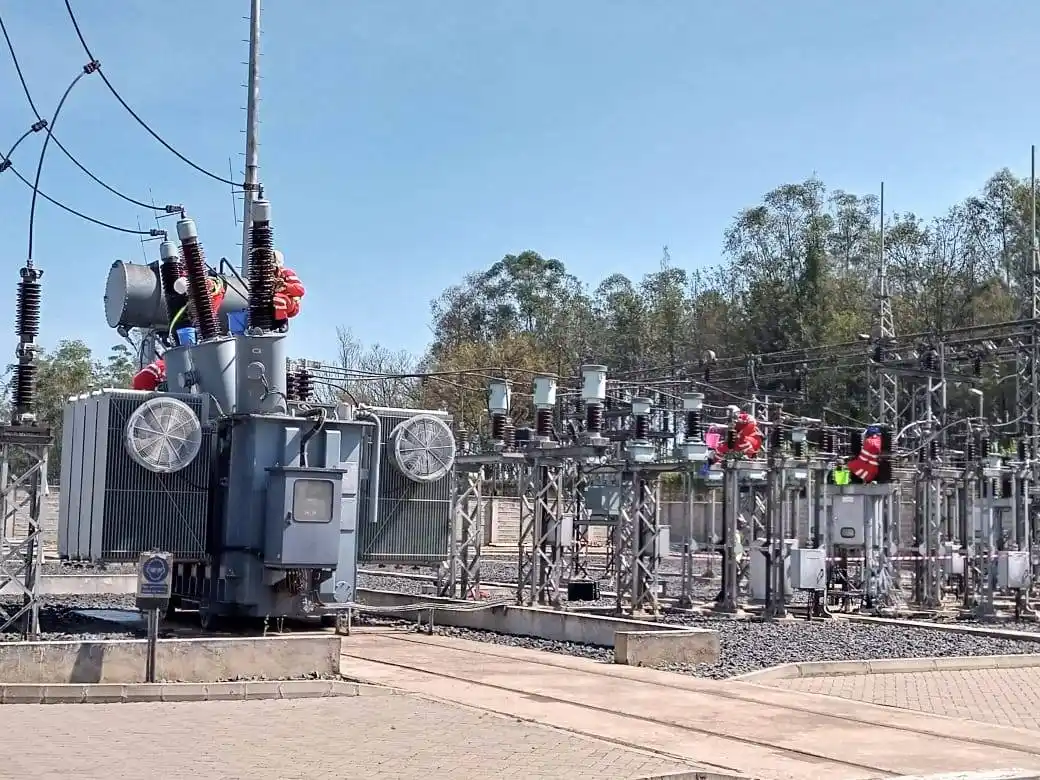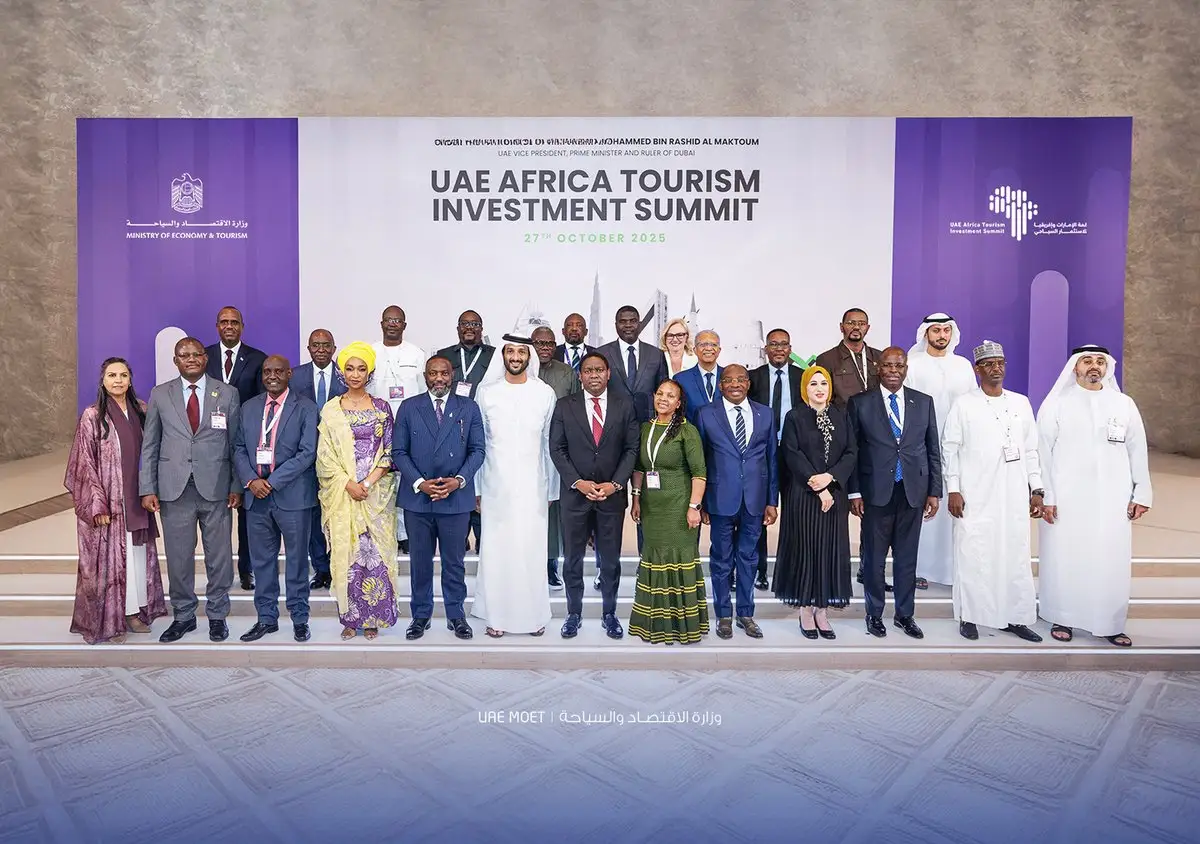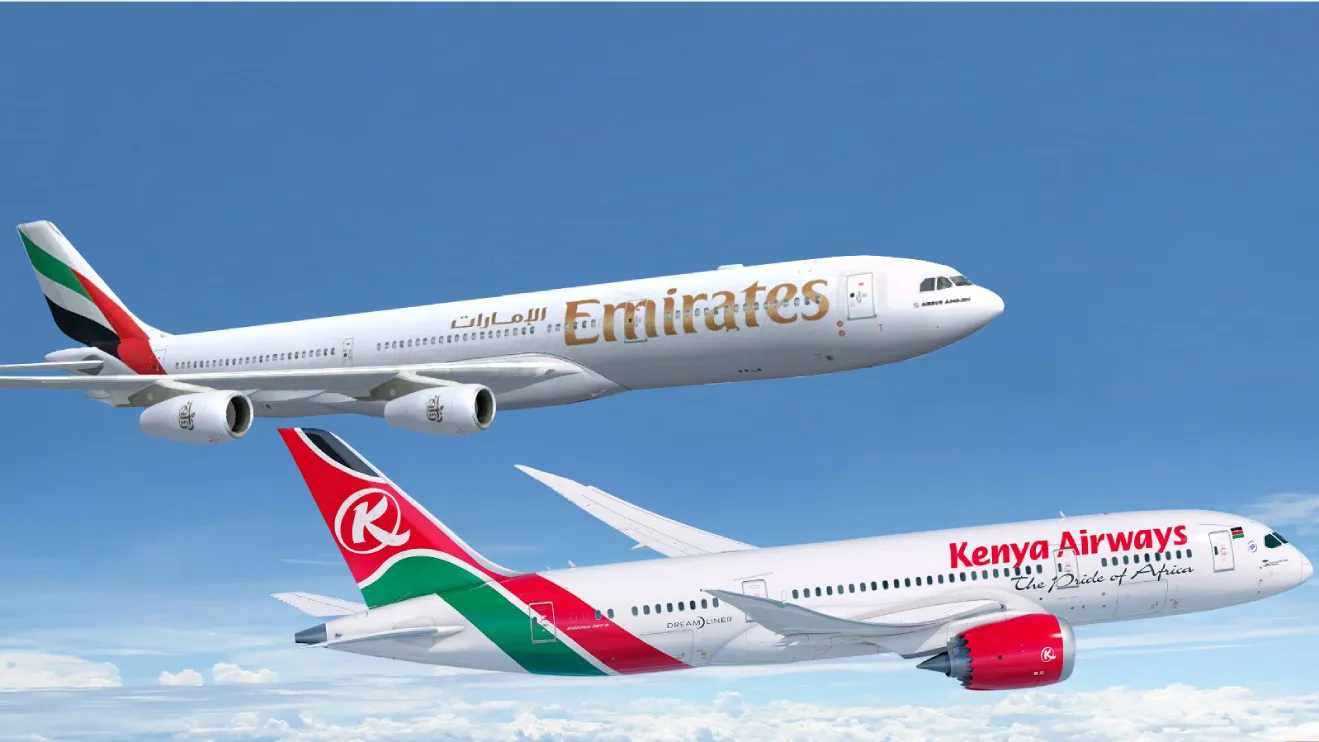The Democratic Republic of Congo (DRC), a nation of immense mineral wealth and untapped potential, has taken another significant step towards economic stability and transparency. Today, the International Monetary Fund (IMF) announced the disbursement of a second installment, totaling $261.9 million, as part of a larger $1.7 billion Extended Credit Facility (ECF) loan. This crucial injection of funds is a direct acknowledgment of Kinshasa’s progress on vital financial reforms, particularly the implementation of a Treasury Single Account (TSA), even as the country navigates persistent security challenges in its eastern regions.
This latest disbursement brings the total funds released under the 38-month program to $523.4 million, following an initial release of $261.5 million when the facility was approved earlier this year. The funds, denominated in Special Drawing Rights (SDRs) – an international reserve asset created by the IMF – are designed to bolster the DRC’s balance of payments, strengthen its foreign exchange reserves, and enhance its capacity to engage effectively in international trade. The IMF’s Executive Board, chaired by Deputy Managing Director Kenji Okamura, noted that while some structural benchmarks were missed, the DRC largely met its quantitative performance criteria for the review period, paving the way for this critical financial support.
The IMF’s Extended Credit Facility: A Lifeline for Economic Transformation
The Extended Credit Facility (ECF) is the IMF’s primary tool for providing medium-term financial assistance to low-income countries facing protracted balance of payments problems. Unlike short-term loans, the ECF is designed to support comprehensive economic programs that address structural impediments to growth and poverty reduction. These programs typically span several years (the DRC’s is 38 months) and come with specific conditions, known as “conditionalities,” that countries must meet to unlock successive disbursements. These conditions often focus on macroeconomic stability, structural reforms, and governance improvements. You can find more information about the ECF on the IMF’s official website.
For the DRC, a country rich in cobalt, copper, diamonds, gold, and other minerals, yet plagued by historical mismanagement, conflict, and widespread poverty, the ECF represents a vital opportunity for economic transformation. Despite its vast natural resources, the DRC has long struggled to translate this wealth into broad-based development, partly due to weak governance, corruption, and a lack of transparency in public financial management. The $1.7 billion ECF program aims to tackle these deep-seated issues, providing both financial support and a framework for reforms that can foster sustainable and inclusive growth.
The IMF’s decision to disburse the second tranche underscores a cautious optimism regarding the DRC’s commitment to reform. The funds, equivalent to 190.4 million SDRs, are not merely cash but a basket of leading international currencies (U.S. dollar, Euro, Chinese Yuan, Japanese Yen, and British Pound), providing the DRC with flexible and stable international liquidity. This bolsters its ability to manage its external accounts, stabilize its currency, and facilitate trade, all crucial for attracting foreign investment and diversifying its economy beyond raw material exports.
Treasury Single Account (TSA): A Pillar of Transparency and Fiscal Control
A cornerstone of the DRC’s IMF-backed reform agenda is the implementation of a Treasury Single Account (TSA). This seemingly technical reform is, in fact, a powerful tool for enhancing public financial management, curbing corruption, and improving revenue mobilization.
What is a TSA?
In simple terms, a TSA is a unified structure of government bank accounts that gives a consolidated view of government cash resources. Instead of having thousands of separate bank accounts scattered across various ministries, departments, and agencies, a TSA brings all government cash balances into a single, central account (or a set of linked accounts) at the central bank. This allows the Ministry of Finance to have real-time visibility and control over all government funds. The IMF provides detailed guidance on TSAs in its publications, such as “Treasury Single Account: An Essential Tool for Government Cash Management” (IMF Working Paper).
Why is it Crucial for the DRC?
For countries like the DRC, where public financial management systems have historically been fragmented and susceptible to illicit activities, a TSA is transformative. Before the reform, the DRC’s government operated with thousands of bank accounts, many outside the direct oversight of the central treasury. This fragmentation created numerous opportunities for:
- Corruption and Embezzlement: Funds could be diverted or misused in opaque, unaudited accounts.
- Inefficient Cash Management: With funds spread across many accounts, the government couldn’t efficiently manage its cash flow, leading to unnecessary borrowing or idle balances.
- Lack of Transparency: It was nearly impossible to get a clear, comprehensive picture of the government’s financial position, hindering effective budgeting and accountability.
- Parallel Tax Collections: As the news content highlights, the absence of a TSA facilitated “parallel tax collections outside official accounts,” meaning revenues were collected but never made it into the national treasury, directly impacting the government’s ability to fund public services.
The push for a TSA is thus intended to support revenue mobilization by plugging these leakages and ensuring that all collected taxes and revenues flow into official, auditable channels. This direct link between revenue collection and central government accounts is fundamental to strengthening fiscal discipline and improving public service delivery.
Implementation Challenges and Progress
While the DRC began working on TSA reforms as early as May 2023, significant progress was limited until the launch of the ECF program this year. The IMF’s involvement provided the necessary impetus and technical guidance. The implementation process is complex and requires careful phasing. Key steps include:
- Stress Tests: Assessing the potential impacts on local commercial banks, which previously held many government accounts, to ensure a smooth transition without destabilizing the banking sector.
- Software Upgrades: Investing in modern financial management software and systems at the Central Bank of Congo (BCC) to handle the consolidated accounts and provide real-time data.
- Steering Committee: The establishment of a dedicated steering committee in January to spearhead the reforms demonstrates a structured approach to implementation, indicating a serious commitment from the DRC government.
The IMF’s observation of “concomitant progress” on TSA implementation, despite other challenges, is a strong signal that this critical reform is moving forward.
Regional Context: TSAs Across Africa
The DRC’s journey with the TSA is not unique in Africa. Many countries in the region have adopted or are in the process of adopting similar reforms, often as a condition for IMF or World Bank support. For instance, Kenya, Uganda, and Tanzania have all implemented TSAs to varying degrees of success, aiming to improve fiscal transparency and efficiency. Their experiences underscore the universal benefits of such a system for public financial management, but also highlight the technical and political complexities involved in its full rollout. Reports on TSA implementation in countries like Nigeria provide further insights into these challenges and successes. The IMF consistently advocates for TSAs as a best practice for modern public financial management, recognizing its role in strengthening governance and macroeconomic stability.
Navigating Headwinds: Mixed Performance and Persistent Challenges
Despite the positive strides in TSA implementation, the IMF’s review noted that the DRC’s “performance under the programme was mixed,” primarily due to the “intensification of the conflict” in its eastern provinces. This ongoing insecurity has placed significant strains on the national budget, leading to some missed targets.
Fiscal Deficit Overshoot:
One key quantitative performance criterion that was overshot was the commitment to keep the fiscal deficit below 0.3 percent of GDP. The actual deficit reached 0.8 percent of GDP. This increase is directly attributed to higher-than-expected security spending in response to the escalating conflict in eastern DRC. The eastern part of the country has been a hotbed of instability for decades, with numerous armed groups vying for control over territory and lucrative mineral resources. Recent reports from organizations like CSIS and UN News highlight the ongoing violence and its humanitarian and economic toll. The recent intensification of hostilities has necessitated a significant allocation of national resources to defense and security operations, diverting funds that might otherwise have been used for development or deficit reduction. This highlights the difficult trade-off many conflict-affected nations face between immediate security needs and long-term economic stability.
Foreign Exchange Asset Target Missed:
Another missed target related to the Central Bank of Congo’s (BCC) foreign exchange assets held with local correspondents. This was attributed to “higher-than-expected tax payments in foreign currency on government accounts.” While this might seem counterintuitive, it suggests that a larger-than-anticipated volume of tax revenues was collected in foreign currency and held in commercial banks rather than being immediately transferred to the central bank’s main foreign exchange reserves. This could reflect a lag in the full operationalization of the TSA for all foreign currency inflows or specific arrangements with large taxpayers. While not necessarily a sign of fiscal distress, it indicates a need for tighter control over foreign currency flows into government coffers.
IMF Waivers: A Sign of Flexibility and Continued Engagement:
Crucially, the IMF board approved waivers for these missed targets, allowing the disbursement to proceed. This decision is significant. It indicates that the IMF recognizes the legitimate external factors (like the conflict) that impacted the DRC’s performance and views the overall reform trajectory as positive. Waivers are not granted lightly; they reflect the Fund’s assessment that the underlying program remains sound and that the authorities are committed to corrective actions. This flexibility is essential for programs in fragile and conflict-affected states, where unforeseen shocks can easily derail reform efforts. It signals continued confidence in the DRC’s commitment to the broader reform agenda.
Future Outlook: Peace, Reforms, and a Brighter Horizon
IMF Deputy Managing Director Kenji Okamura expressed cautious optimism about the future, noting that the recent peace agreement signed between the DRC and Rwanda in Washington could significantly improve the outlook. This agreement, often referred to as the Washington Accord, was signed on June 27, 2025, and aims to end the conflict between the two nations. The U.S. Department of State provides details on the peace agreement. The long-standing tensions and proxy conflicts between the two nations have been a major destabilizing factor in eastern DRC. A genuine and sustained peace agreement could lead to a de-escalation of conflict, allowing the DRC to reduce its security spending and reallocate resources towards development priorities. This could, in turn, enable the country to meet its missed fiscal targets by 2026, as envisioned.
Beyond the immediate fiscal and security challenges, the DRC government has committed to accelerating structural reforms in several key areas, which are vital for building a resilient and prosperous economy:
- Strengthening the AML/CFT Framework: This refers to Anti-Money Laundering (AML) and Combating the Financing of Terrorism (CFT) frameworks. Strengthening these systems is crucial for preventing illicit financial flows, making the financial sector more robust, and improving the country’s international reputation. The Financial Action Task Force (FATF) sets international standards for AML/CFT. It involves implementing stricter regulations, enhancing financial intelligence units, and improving cross-border cooperation to track and stop illegal money movements.
- Improving the Business Climate: The DRC has historically been a challenging place to do business due to bureaucratic hurdles, corruption, and an unpredictable legal environment. Reforms aimed at simplifying regulations, protecting property rights, and ensuring contract enforcement are essential for attracting domestic and foreign investment, which is critical for job creation and economic diversification. While the World Bank’s “Doing Business” report series has been discontinued, historical data and country guides, such as MGI Worldwide’s guide to doing business in DRC, often highlight areas for improvement.
- Enhancing Transparency and Governance: This is a broad commitment that encompasses the TSA reform but extends to all aspects of public administration. It involves making government operations more open, accountable, and less susceptible to corruption. This includes strengthening auditing institutions, improving public procurement processes, and promoting a culture of integrity within government.
- Combating Corruption: Directly linked to transparency and governance, this commitment involves concrete measures to investigate and prosecute corrupt officials, recover stolen assets, and implement preventative mechanisms to reduce opportunities for corruption. Transparency International’s Corruption Perception Index consistently ranks the DRC low, underscoring the scale of this challenge.
- Upgrading National Statistics: Reliable and timely economic data is fundamental for effective policymaking, investment decisions, and monitoring progress. Improving the quality and availability of national statistics will allow the DRC government, as well as international partners and investors, to make more informed decisions. Organizations like the African Development Bank (AfDB) actively support statistical capacity building in African countries.
These commitments, if fully implemented, have the potential to fundamentally reshape the DRC’s economic trajectory. By fostering a more transparent, predictable, and stable environment, the country can better leverage its immense natural resources, attract sustainable investment, and ultimately improve the living standards of its population. The IMF’s continued support, coupled with regional peace efforts, offers a glimmer of hope for a nation long defined by its challenges, signaling a potential shift towards an era of greater prosperity and stability.
Conclusion
The latest IMF disbursement to the Democratic Republic of Congo is a testament to the country’s determined efforts towards critical financial reforms, particularly the successful rollout of its Treasury Single Account. While the ongoing conflict in the east presents undeniable fiscal challenges, the IMF’s decision to grant waivers signals confidence in the DRC’s commitment to its reform agenda. The path ahead requires sustained political will, continued investment in governance, and the dividends of a durable peace. Should the recent peace agreement with Rwanda hold, and the DRC follow through on its pledges to strengthen anti-corruption measures, improve the business climate, and enhance transparency, this IMF program could indeed mark a turning point, ushering in an era of greater economic stability and inclusive growth for a nation long overdue for prosperity.
Photo Source: Google
By: Montel Kamau
Serrari Financial Analyst
8th July, 2025
Article, Financial and News Disclaimer
The Value of a Financial Advisor
While this article offers valuable insights, it is essential to recognize that personal finance can be highly complex and unique to each individual. A financial advisor provides professional expertise and personalized guidance to help you make well-informed decisions tailored to your specific circumstances and goals.
Beyond offering knowledge, a financial advisor serves as a trusted partner to help you stay disciplined, avoid common pitfalls, and remain focused on your long-term objectives. Their perspective and experience can complement your own efforts, enhancing your financial well-being and ensuring a more confident approach to managing your finances.
Disclaimer: This article is for informational purposes only and does not constitute financial advice. Readers are encouraged to consult a licensed financial advisor to obtain guidance specific to their financial situation.
Article and News Disclaimer
The information provided on www.serrarigroup.com is for general informational purposes only. While we strive to keep the information up to date and accurate, we make no representations or warranties of any kind, express or implied, about the completeness, accuracy, reliability, suitability, or availability with respect to the website or the information, products, services, or related graphics contained on the website for any purpose. Any reliance you place on such information is therefore strictly at your own risk.
www.serrarigroup.com is not responsible for any errors or omissions, or for the results obtained from the use of this information. All information on the website is provided on an as-is basis, with no guarantee of completeness, accuracy, timeliness, or of the results obtained from the use of this information, and without warranty of any kind, express or implied, including but not limited to warranties of performance, merchantability, and fitness for a particular purpose.
In no event will www.serrarigroup.com be liable to you or anyone else for any decision made or action taken in reliance on the information provided on the website or for any consequential, special, or similar damages, even if advised of the possibility of such damages.
The articles, news, and information presented on www.serrarigroup.com reflect the opinions of the respective authors and contributors and do not necessarily represent the views of the website or its management. Any views or opinions expressed are solely those of the individual authors and do not represent the website's views or opinions as a whole.
The content on www.serrarigroup.com may include links to external websites, which are provided for convenience and informational purposes only. We have no control over the nature, content, and availability of those sites. The inclusion of any links does not necessarily imply a recommendation or endorsement of the views expressed within them.
Every effort is made to keep the website up and running smoothly. However, www.serrarigroup.com takes no responsibility for, and will not be liable for, the website being temporarily unavailable due to technical issues beyond our control.
Please note that laws, regulations, and information can change rapidly, and we advise you to conduct further research and seek professional advice when necessary.
By using www.serrarigroup.com, you agree to this disclaimer and its terms. If you do not agree with this disclaimer, please do not use the website.
www.serrarigroup.com, reserves the right to update, modify, or remove any part of this disclaimer without prior notice. It is your responsibility to review this disclaimer periodically for changes.
Serrari Group 2025












